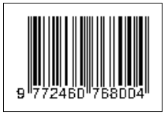Rancang Bangun Purwarupa Penerima Paket APRS Berbasis Raspberry Pi 2 untuk Stasiun Bumi
Agfianto Eko Putra(1*), Unggul Adhi Nugroho(2), Bakhtiar Alldino Ardi Sumbada(3), Catur Atmaji(4)
(1) (Scopus ID : 56534980600); Department of Computer Science and Electronics, Universitas Gadjah Mada
(2) Program Studi Elektronika dan Instrumentasi, DIKE, FMIPA,UGM, Yogyakarta
(3) Department of Computer Science and Electronics, Universitas Gadjah Mada
(4) Department of Computer Science and Electronics, Universitas Gadjah Mada
(*) Corresponding Author
Abstract
The design of Raspberry Pi 2-based APRS packets for UGM earth stations has been designed, which is much cheaper than commercial devices on the market. A TV tuner is used as a signal receiver, the receiver is accessed via a laptop wirelessly. A directed antenna with a controller is used to automatically point to the satellite. The test was carried out by receiving the APRS package emitted by the International Space Station (ISS) satellite and the LAPAN-A2 satellite. The results showed that the tool was able to get the ISS satellite APRS package with a total of 6 packages out of 10 packets emitted. The package received has an average amplitude of 1,200 Hz and 2,200 Hz which is much smaller than the overall audio amplitude. This indicates that there is high noise in the signal. While the APRS package from the LAPAN-A2 satellite has not been successfully obtained.
Keywords
Full Text:
PDFReferences
[1] M.B. Sruthi, M. Abirami, A. Manikkoth, R. Gandhiraj, and K.P. Soman, “Low cost digital transceiver design for Software Defined Radio using RTL-SDR”. in 2013 International Multi-Conference on Automation, Computing, Communication, Control and Compressed Sensing Proceeding, 2013 [Online], pp.852–855. Available: https://ieeexplore.ieee.org/document/6526525
[2] R. Danymol, T. Ajitha, and R. Gandiraj, “Real-Time Communication System Design using RTL-SDR and Raspberry”. in 2013 International Conference on Advanced Computing and Communication Systems (ICACCS -2013) Proceeding, 2013 [Online], pp.1–5. Available: https://ieeexplore.ieee.org/document/6938691
[3] K. Hajdarevic and S. Konjicija, 2015, “A Low Energy Computer Infrastructure for Radio VOIP Supported Communication and SDR APRS in Education and Disaster Relief Situations”, in 38th International Convention on Information and Communication Technology, Electronics and Microelectronics (MIPRO), 2015 [Online], pp.556–561. Available: https://ieeexplore.ieee.org/document/7160334
[4] S. Miller, “1200 Baud Packet Radio Details” N1VG's Projects and Stuff, http://n1vg.net/packet/index.php [Accessed March 14, 2019].
[5] Electron18, “Interface specification for transmission of binary data by frequency manipulation FSK, 2010 [Online]. Available: http://www.softelectro.ru/bell202_en.html [Accessed March 14, 2019].
[6] APRSdroid, “APRSdroid - APRS for Android”, 2017 [Online]. Available: https://aprsdroid.org/ [Accessed March 14, 2019].
[7] Laidukas, “Mods and performance of R820T2 based RTL SDR receiver” RTL-SDR.com, https://www.rtl-sdr.com/mods-performance-r820t2-rtl-sdr/ [Accessed March 14, 2019].
[8] FTDI, “Application Note AN_146 USB Hardware Design Guidelines for FTDI ICs. Technology”, 2014 [Online]. Available: https://www.ftdichip.com/Documents/AppNotes/AN_146_USB_Hardware_Design_Guidelines_for_FTDI_ICs.pdf
[9] Mobatek, “MobaXterm - Enhanced terminal for Windows with X11 server, tabbed SSH client, network tools and much more”, 2018 [Online]. Available: http://mobaxterm.mobatek.net [Accessed March 14, 2019].
[10] K. Keen, “RTL-SDR experimental branch”, 2015 [Online]. Available: https://github.com/keenerd/rtl-sdr [Accessed March 14, 2019].
[11] J. Langner, “Dire Wolf User Guide”, 2016 [Online]. Available: https://github.com/wb2osz/direwolf/blob/master/doc/User-Guide.pdf
[12] M. Wakita, “All Satellites Frequency List Update”, 2019 [Online]. Available: http://www.ne.jp/asahi/hamradio/je9pel/satslist.doc [Accessed March 13, 2019].
Article Metrics
Refbacks
- There are currently no refbacks.
Copyright (c) 2019 IJEIS (Indonesian Journal of Electronics and Instrumentation Systems)

This work is licensed under a Creative Commons Attribution-ShareAlike 4.0 International License.
View My Stats1







